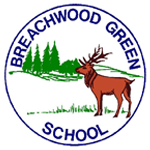Learning
At Breachwood Green JMI School, our broad and balanced curriculum is thoughtfully designed with pupils at its heart. Built on a clear sequence of knowledge and skills, each stage builds upon the last, ensuring strong foundations and meaningful progress. Through ongoing assessment for learning, we spot gaps early and adapt teaching so that all children are ready for what comes next.
We foster resilience by encouraging children to tackle challenges confidently, while aspirational goals help each child to realise their potential. With a strong focus on equity, every pupil is supported to thrive, including those with additional needs. Learning is rich with discovery, offering opportunities that shape the whole child—socially, emotionally, physically and creatively.
Rooted in integrity, our curriculum evolves with reflection and research, giving children not only knowledge, but the lifelong skills and attitudes that prepare them for their future. As pupils leave us, they do so with confidence, independence and pride in who they’ve become.
Please see the table below for the disciplinary practices - within each subject - which our pupils will develop throughout their time at Breachwood Green JMI School:
| Art |
- experimenting, inventing and creating their own works of art, craft and design
- having an appreciation and understanding of artists and being able to evaluate and analyse creative works using the language of art
- controlling different media and understand it’s potential
- valuing the creative process
- developing resilience to meet artistic challenges
|
| Computing |
- understanding the evolving role of technology
- understanding the importance of technology in everyday life
- investigating and using a range of programmes and applications
- staying safe online and recognising the potential dangers of the ever-evolving online world
- having confidence in digital literacy
|
| DT |
- developing, planning and communicating ideas through research and design
- selecting and using tools, equipment, materials and components to make quality products
- evaluating processes and products
- understanding the impact of design and technology on ourselves and the wider environment
- taking risks, learning from mistakes and problem solving to develop resilience and innovation
|
| English: Reading |
- having a systematic understanding of phonics (following our scheme: Animaphonics)
- reading for enjoyment
- reading and comprehending a range of texts fluently and accurately
- using an extensive and rich vocabulary
- applying their understanding of grammar
|
| English: Writing |
- writing fluently and confidently within a range of fiction and non-fiction genres
- writing for a specific purpose and audience, understanding a wide range of writing techniques and sound understanding of grammar rules
- understanding the importance of grammar and its effect in different genres
- using imaginative ideas to engage the reader
- applying a robust knowledge and understanding of phonic and spelling rules
|
| French |
- understanding spoken language and responding appropriately
- reading and interpreting French text showing an understanding of words, phrases and simple writing
- understanding the basic grammar in the French language
- writing phrases from memory and adapting these to create new sentences
- making connections between language to support a thorough understanding of new words introduced
|
| Geography |
- developing a curiosity and fascination about the world
- having a clear understanding of human and physical processes/aspects and the impact of these
- using mapping skills to interpret different geographical aspects
- using a range of sources, including fieldwork, to express well-informed opinions
- comparing and contrasting different global locations
|
| History |
- developing a curiosity, appreciation and understanding of the past
- evaluating primary and secondary sources
- having a sound chronological understanding and ability to recall dates of key events
- developing historical enquiry and investigative skills
- developing an understanding of the impact of the past on modern society
|
| Maths |
- understanding that maths is essential life skill
- using rich mathematical vocabulary to explain their thinking
- recalling and applying number facts and operations
- manipulating numbers and recalling known facts to develop fluency
- developing resilience to be able to problem solve multi-step problems
|
| Music |
- creating and composing music on their own and in an ensemble
- understanding and exploring how music is created, produced and communicated
- reviewing and evaluating music, considering the impact it has on oneself
- playing and performing tuned and untuned instruments
- using and understanding staff and other musical notation
|
| PE |
- experiencing different sports and recognising and developing personal improvement within these
- increasing physical activity
- understanding the effect and benefits of physical activity to our health and mental wellbeing
- developing good sportsmanship
- understanding team ethos
|
| PSHE |
- recognising self-identity, self-worth and develop life-skills
- being able to keep oneself safe
- recognising and accepting differences and challenge prejudices
- upholding the school values
- taking responsibility for oneself and making positive and healthy choices that improve well-being
|
| RE |
- respecting others and gain a broader understanding of different practices and beliefs
- linking their lives with that of others
- having a sense of awareness of diversity, in a non-judgemental way and challenging discriminative behaviours and views
- having resilient responses to misunderstandings, stereotyping and division
|
| Science |
- using scientific vocabulary
- asking and posing scientific questions
- planning, measuring, recording and evaluating
- applying scientific knowledge to investigate and explore, understanding scientific method and practice
- understanding the world through the specific disciplines of biology, chemistry and physics.
|


 Breachwood Green JMI School
Breachwood Green JMI School